Education Next Poll: What the numbers tell us
The 2019 Education Next Poll results are in!
This year’s responses paint an interesting picture of what America thinks about education.
America supports school choice
One thing is very clear from this year’s poll results.
Americans like the idea of having options when it comes to education.
Clear majorities support charter schools, tax-credit scholarships, and vouchers.
Tax-credit scholarships, like the Empowerment Scholarship Account (ESA) proposed in Missouri, are the clear favorite.
Support of ESAs grew to 58% last year.
Vouchers were the second most popular choice, with 55% approving a universal voucher system.
Charter schools had less support, with 48% (still a majority) supporting them. There is a growing political divide on charters with a slight majority of Democrats opposing them.
Within the Democratic party, there are racial divides with majorities of blacks and Hispanics supporting charter schools and a majority of whites opposing them.
Only one demographic, teachers in unions, had a majority opposing all of the school choice options in the poll.
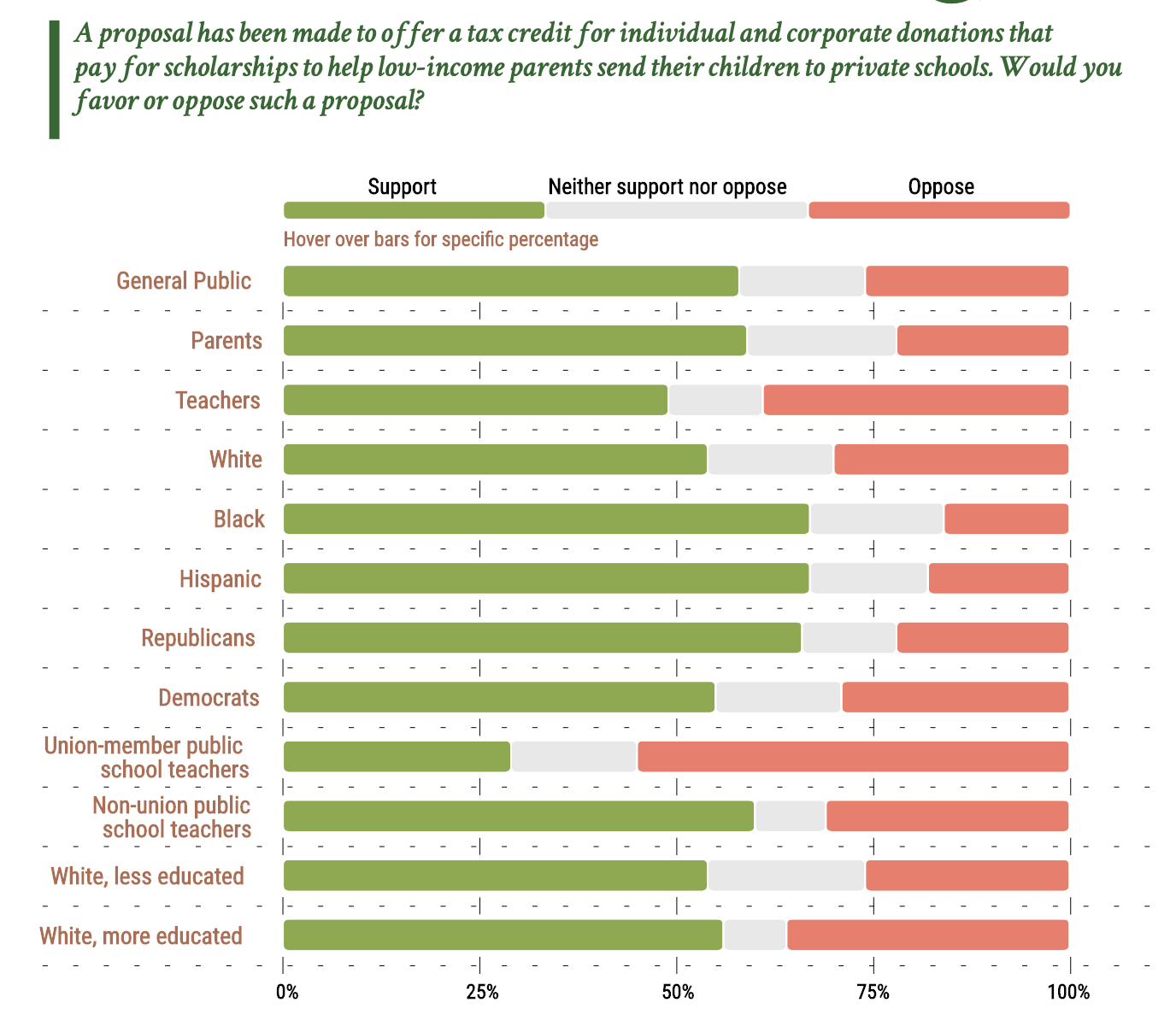
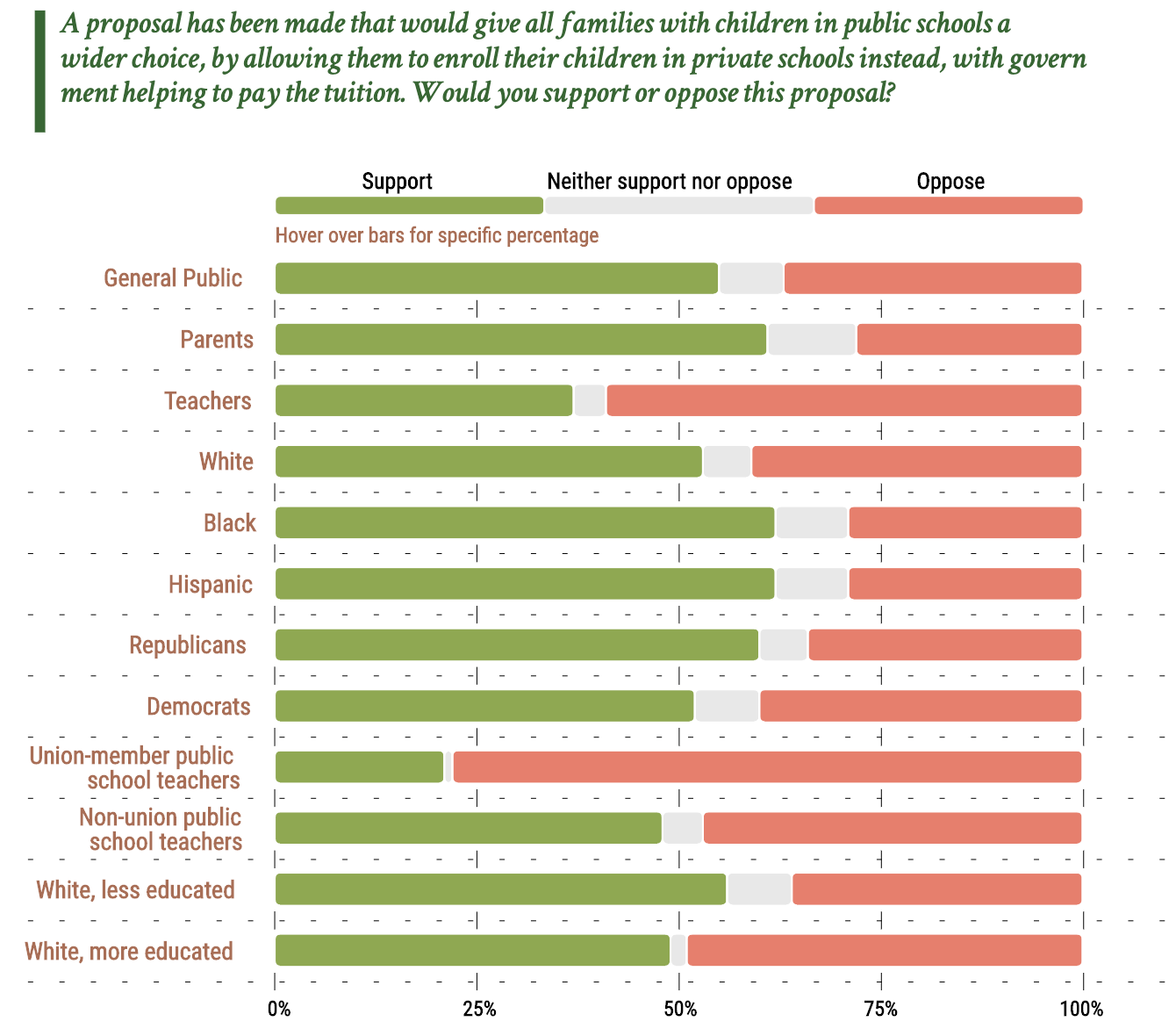
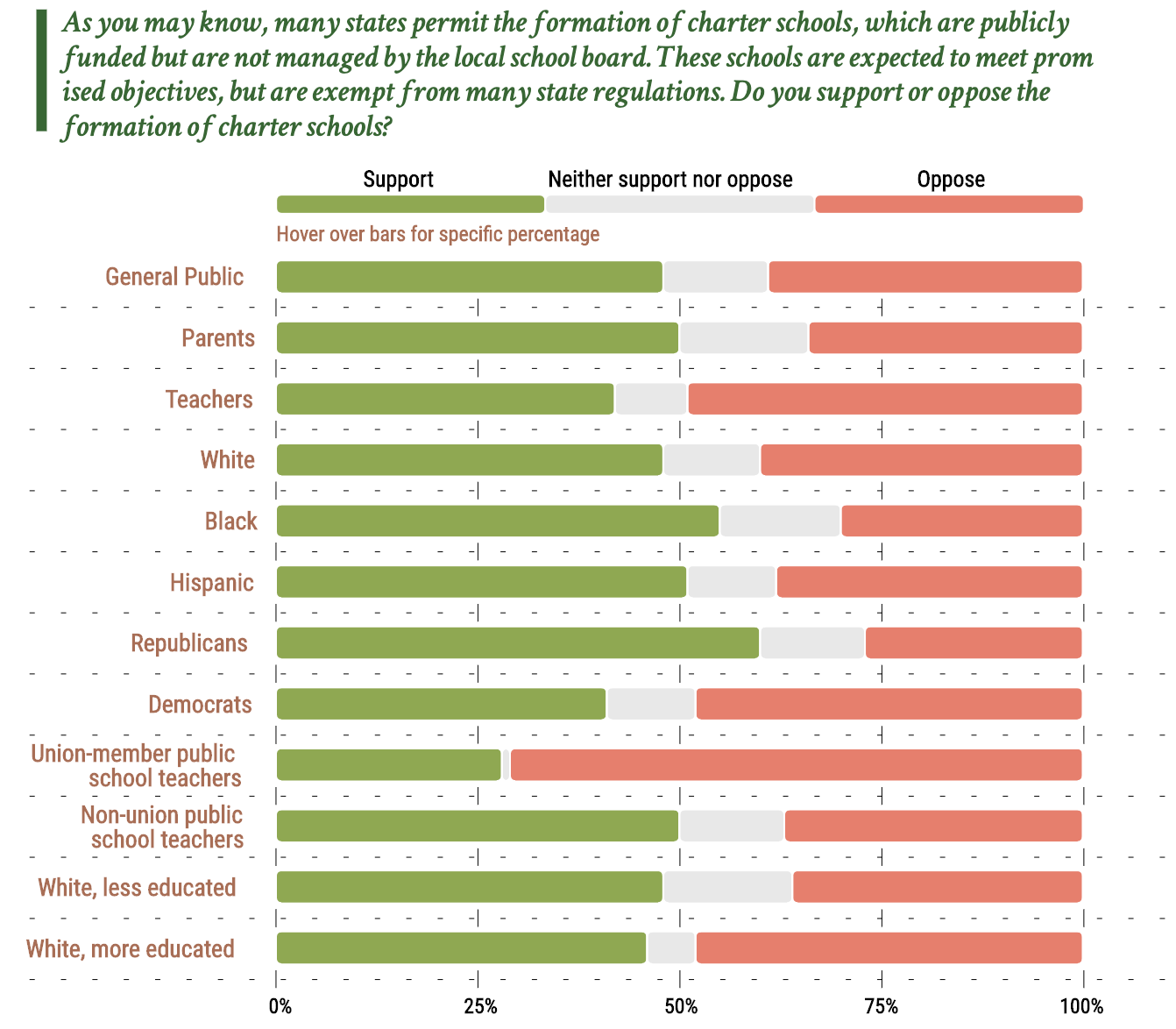
We don’t understand our schools
One disturbing trend in the poll is how little Americans got right about our education system.
We have inflated views on the quality of our schools, deflated guesses on how much we spend on students, and a poor understanding of what charter schools actually are.
Sixty percent of respondents would give their local school a grade of an “A” or a “B.”
The reality is that in Missouri, 1 in 10 public school students are trapped in an underperforming school that, by the state’s own evaluation program, would receive a letter grade of “C,” “D” or “F.”
Respondents also vastly underestimated the amount we spend per pupil.
Every demographic, including teachers, estimated per-pupil spending at about half the actual amount spent.
Less than 30 percent of respondents were correct on questions about charter schools.
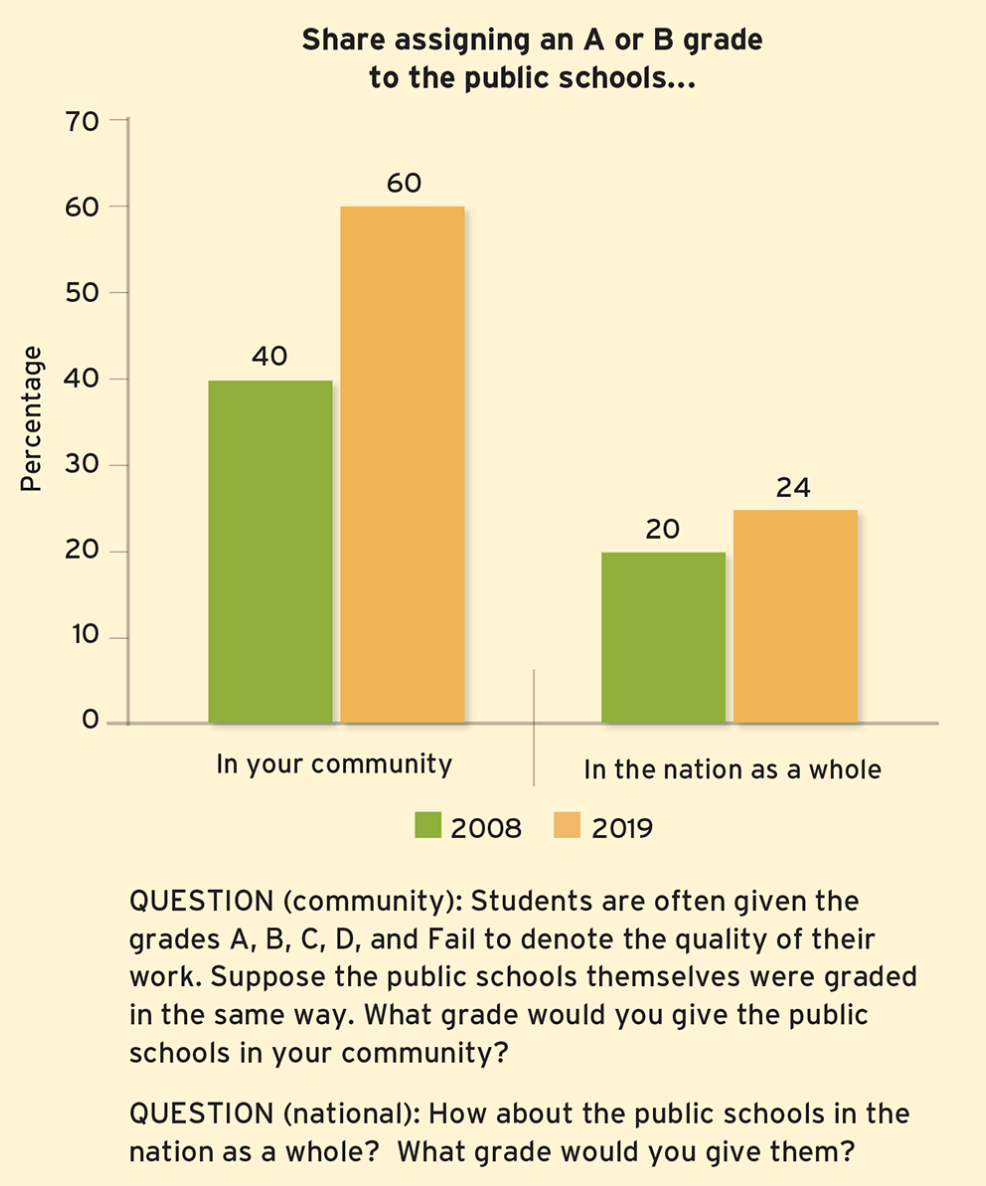
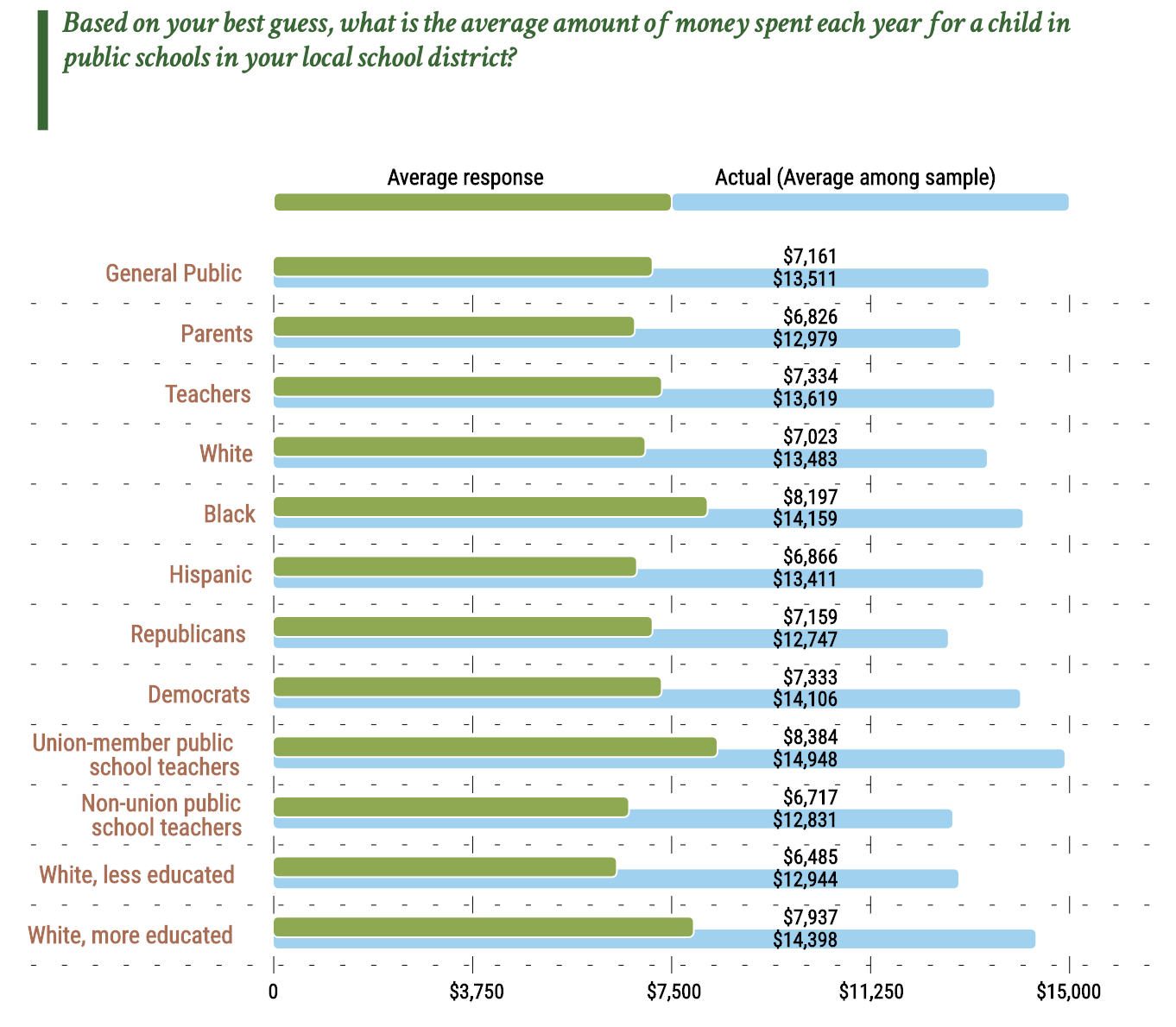
Only 22 percent correctly answered that charter schools can NOT hold religious services. Only 27 percent correctly answered that charter schools can NOT charge tuition.
America supports teachers but disagrees with them
The poll showed strong support for teachers and teachers unions.
Between 56% and 72% of respondents supported increasing teacher pay.
Forty-six percent of respondents think teachers’ unions have a positive impact, and 54 percent support teachers’ unions right to strike.
But teachers are in the minority when it comes to a wide range of educational issues.
Forty-seven percent of the public think teacher pay should be merit-based while 74% of teachers are against that idea.
Forty-nine percent of the public oppose teacher tenure, while 59 percent of teachers support tenure.
Seventy-four percent of the public support testing while 49% of teachers oppose testing.
And, as mentioned earlier, there is a major disconnect between the public support of school choice and teachers’ union opposition to educational options.
« Previous Post: DESE continues effort to block virtual education access
» Next Post: School choice can help combat crime